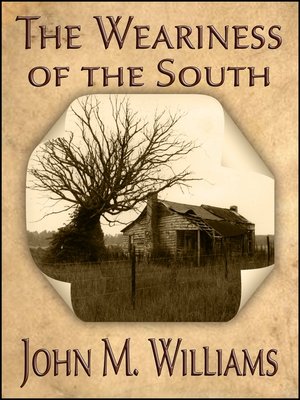
Sign up to save your library
With an OverDrive account, you can save your favorite libraries for at-a-glance information about availability. Find out more about OverDrive accounts.
Find this title in Libby, the library reading app by OverDrive.



Search for a digital library with this title
Title found at these libraries:
| Loading... |
These ten stories of the old and new south feature the young, old, and middle-aged confronting painful transitions and oppressive memories, from brothers at odds in the 1880s to a kid in Civil Rights era Montgomery to an old man lost in the cosmos on a late-night bathroom trip. In the title story, a recently-divorced young man attends a family reunion and falls into the cracks of time. Jason, entangled in a large Southern family, and recently divorced from an outsider woman, attends a much-diminished family reunion where the living and the dead are indistinct, and they haunt his long drive home. In "Bruce," a middle-aged man contemplates the riddle of the man his mother didn't choose. For years, Bruce, the golden boy his mother rejected in favor of his father, has haunted the shadows of a man's life, and now he tracks him back through the layers of time. In "Midway in Life's Journey," Sylvia Quist confronts her fortieth birthday and takes a day of refuge in her green piece of suburbia as middle age arrives. "Herbert Alphonso Thrower" is a blind, ninety year old man who gets turned around in his nursing home room on a late-night bathroom trip, and must reconstruct reality as he teeters on the precipice of eternity. In "Peaches and Cream" a young boy straddles two worlds in Civil Rights-era Montgomery. The bus-obsessed narrator recalls solo Greyhound trips as a ten year old to his widowed grandmother's house in Montgomery, circa 1962. He fondly remembers his friendship with Cora, the help, and not so fondly his grandmother's boarders, one in particular. In "The Year of No Wisteria," graduate student Feurel Ivey, looking to get an article, seeks out aging boozehound novelist Babs Kath, who's holed up in a condo. Like a fly paying a visit to a spider web, he finds himself in the age-old struggle: who will be the author, and who the character? "Hume and Them" is set in rural Alabama in the 1880s. Three heirs to the family farm settle it all with a poker game. The time has come to bequeath the land, and the narrator focuses on black sheep Mack, whose work ethic leaves something to be desired and whose tomcatting leaves something to be fed. In "The Man With No Words Left," a man burns out his supply of invective, and himself. Fred, a northern transplant in a small Southern town, blows his fuse at a snake-oil chiropractor, then takes on the town in a parking lot meltdown. In "The Red and the Green," the narrator welcomes you to the Church of the Green. Or is it Red? Malachi and Jensen visit the Church of the Green where they encounter the radiant Lavorra. They discover she comes with a price: a heart of green. Which of them can afford her? Finally, in "Man and Dog," welcome to retirement. Please have a seat. His wife and daughter like ghosts in the background, a retired man in the antechamber of oblivion watches his dog go bad.






